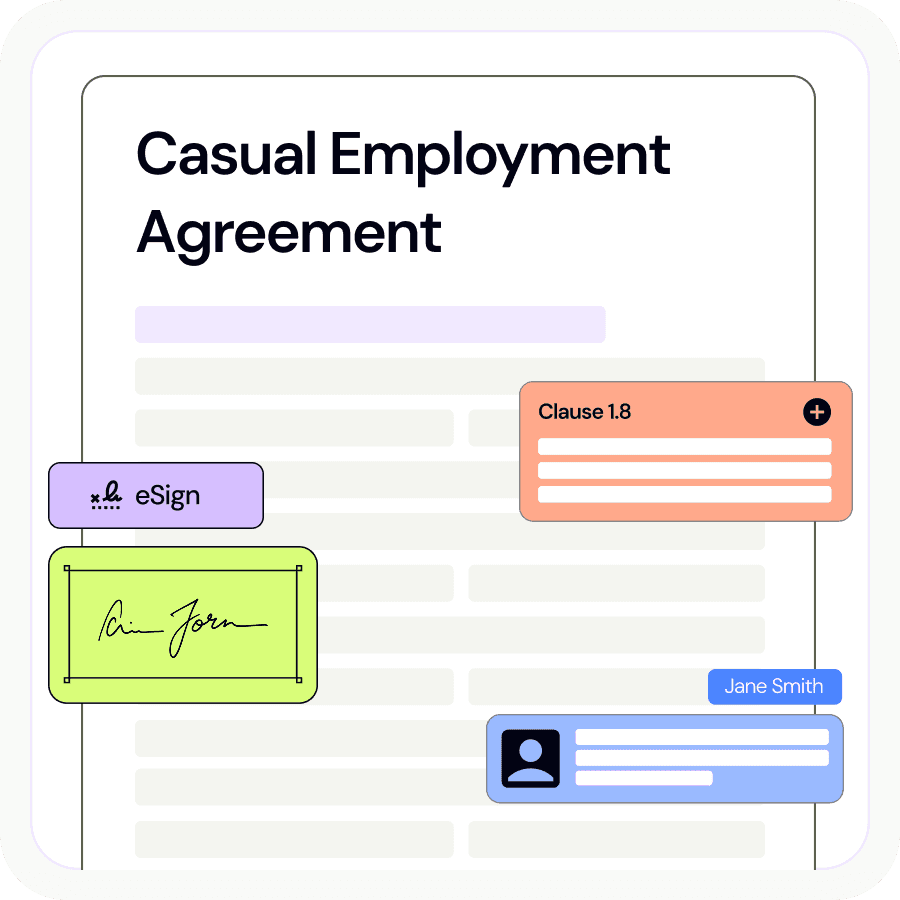Are you the owner of a small business looking to hire more employees? You may already have employment contracts with employees and independent contractors in place. It is important to understand the difference between various employment contracts, and avoid what is known as sham contracting.
If you require assistance in formulating employment contracts for the needs of your business, LawPath has a number of employment contract templates to guide you. Alternatively, you can discuss your employment contract plans with our team of experienced employment lawyers .
What Is Sham Contracting?
Sham contracting is one of the potential HR problems faced by businesses. It is a situation where an employer attempts to disguise an employee as an independent contractor and is illegal under the Fair Work Act 2009 (Cth).
Such arrangements are typically entered into by employers who wish to cut costs by avoiding responsibility to pay legal employee entitlements. For example, unsuspecting employees may be requested to register for an ABN.
Employees and Independent Contractors – The Difference
The Fair Work Act and Independent Contractors Act provide some useful indicators that can help you determine the difference between an employee and an independent contractor.
Employees:
- Typically follow instructions and perform work according to employer guidelines;
- Generally have set hours and available times;
- Are entitled to superannuation contributions from an employer;
- Can receive paid leave;
- May have taxable income; and
- Works under the employer’s ABN.
Independent Contractors:
- Have the ability to control their own specific work task and hours of work;
- Make their own profit or loss on their allocated task;
- Usually pay their own super;
- Will pay their own tax and GST to the ATO;
- Do not receive paid leave; and
- Have their own ABN.
The Penalties
The consequences of creating a sham contract can be severe. Both the company and the individual responsible for the misleading representation can have an action brought against them. Currently, breaches of the Fair Work Act may lead to maximum fines of $54 000 for a corporation and $10 800 for an individual. The Court will also order that the contract be set aside and terminated.
Penalties will not apply if an employer can prove that they were not aware that the contract was genuinely a contract of employment rather than a contract for services.
Risk Minimisation – Actions You Can Take
It is always useful to review your existing employment contracts to ensure that they are free of any misrepresentations. As a small business, it is important to confirm that an employee’s scope of employment and allocated tasks align with what is written in their contract. You should also be aware of the entitlements granted to employees and make payment contributions as required.
If you are uncertain in determining the difference between an employee and an independent contractor, or seek clarification for current or future employment contracts, LawPath can help you get in touch with one of our experienced employment lawyers.
Contact a LawPath consultant on 1800LAWPATH to learn more about customising legal documents, obtaining a fixed-fee quote from our network of 600+ expert lawyers or any other legal needs.







